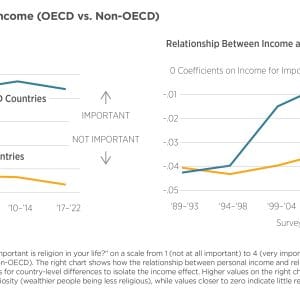- About
- Network
- Research Initiatives
- Big Data Initiative
- Chicago Experiments Initiative
- Health Economics Initiative
- Industrial Organization Initiative
- International Economics and Economic Geography Initiative
- Macroeconomic Research Initiative
- Political Economics Initiative
- Price Theory Initiative
- Public Economics Initiative
- Ronzetti Initiative for the Study of Labor Markets
- Socioeconomic Inequalities Initiative
- Research Initiatives
- Scholars
- Research
- Dynamic Competition for Sleepy DepositsMark L. Egan, Ali Hortaçsu, Nathan A. Kaplan, Adi Sunderam, and Vincent YaoWhy Is Manufacturing Productivity Growth So Low?Enghin Atalay, Ali Hortaçsu, Nicole Kimmel, and Chad SyversonThe Five Shanghai ThemesHarald Uhlig
- Insights
Videos
BFI Youtube Channel
- Events
Upcoming Events
- News












